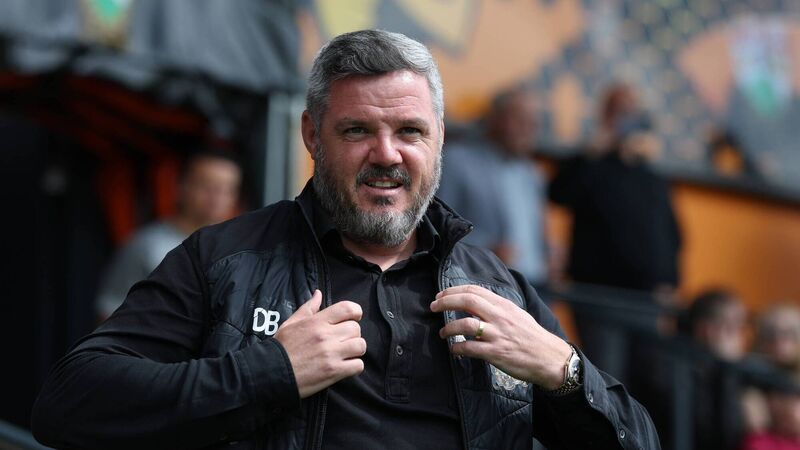The lad from the Liberties: 'They live a six-star life, and three years later, five out of six of them don't have a career in the game'

BUSY BEES: Barnet boss Dean Brennan at the League Two match with Fleetwood Town at The Hive. Pic: Richard Pelham/Getty Images
Dean Brennan, 16 years into a coaching career that began aged 29 at Hemel Hempstead Town, has settled quickly in League football after leading Barnet out of seven years of hell in the National League.
Yet this straight-shooter from Dublin's inner city, who went viral last season after taking aim at the north London club’s supporters because they were getting on the backs of his players too willingly, has quite the list of gripes.











